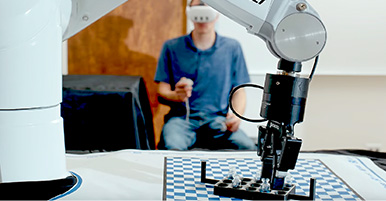Citation
Ranney, M. A., Rinne, L. F., Yarnall, L., Munnich, E., Miratrix, L., & Schank, P. (2008). Designing and assessing numeracy training for journalists: Toward improving quantitative reasoning among media consumers. In P. A. Kirschner, F. Prins, V. Jonker, & G. Kanselaar (Eds.), International Perspectives in the Learning Sciences: Proceedings of the Eighth International Conference for the Learning Sciences, Volume 2 (pp. 2-246 to 2-253). International Society of the Learning Sciences, Inc.
Abstract
Journalists inform multitudes of people. However, they sometimes over-focus on the narrative, failing to integrate critical quantitative information effectively. The Numerically Driven Inferencing (NDI) paradigm’s research (e.g., Ranney et al., 2001; Munnich, Ranney, & Appel, 2004) suggested that a curricular module highlighting evidential/scientific thinking might enhance reporters’ quantitative and analytic skills. The resulting controlled experiment involved 55 first-year journalism graduate students, our “Numbers, News, and Evidence” module, 4.5 classroom hours, 20 homework hours, and several (e.g., Pre-, Mid- and Finaltest) assessments. Post-module findings indicate success: Relative to control data, the experimental group improved on the main numeracy measures: 1) estimation accuracy and 2) math competence involving simple problem solving, data analyses, and exponential growth. Students and faculty both concluded that future students should also receive numeracy modules. The module apparently influenced students’ attitudes about numerical information, too. The collective results may benefit journalists, their instructors, and media consumers.


